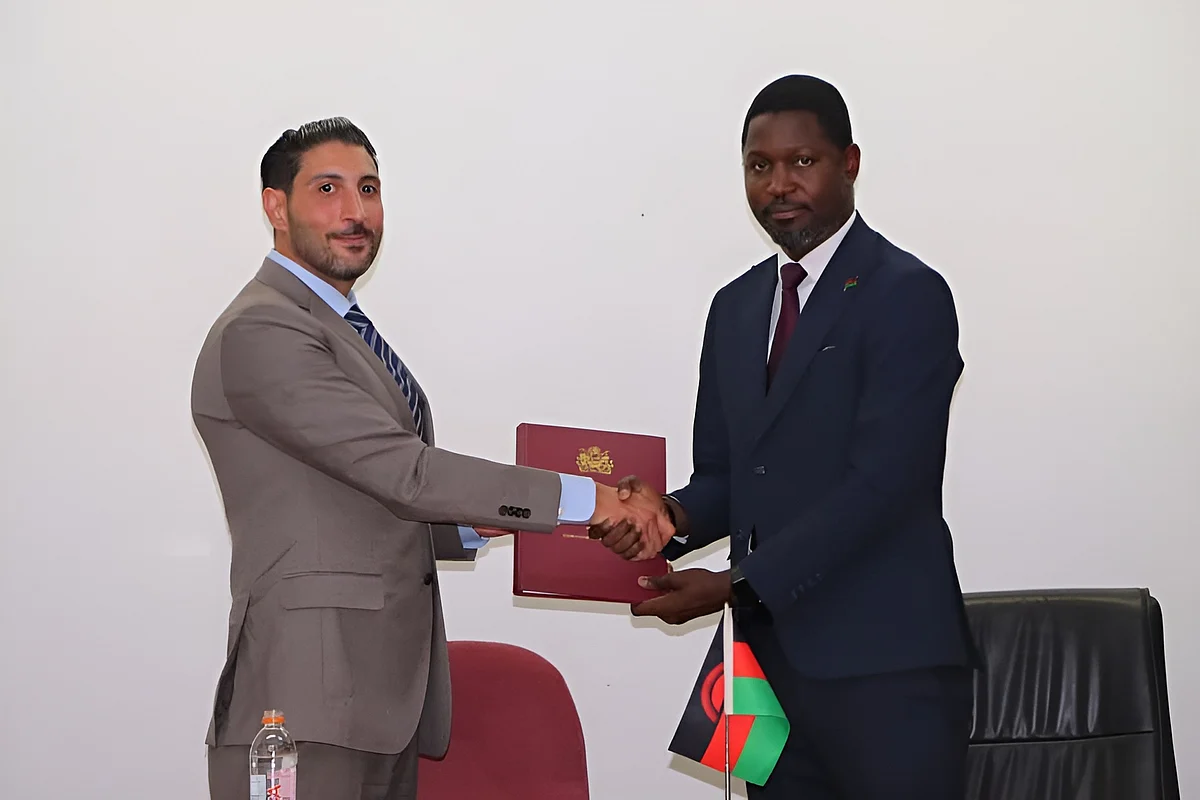
Dubai Brings Malawi Closer To The Paris Agreement Through AI
In a breakthrough that underscores Dubai's growing role as a global exporter of climate innovation, the Government of Malawi has partnered with the Dubai-based Green Economy Partnership (GEP) to launch the world's first AI-powered Paris Agreement Implementation Platform (PAIP); an end-to-end digital system designed to manage national emissions, carbon trading, and international compliance under the Paris Agreement.
This collaboration bridges Africa and the Gulf through technology as it connects Malawi's commitment to sustainable growth with Dubai's leadership in artificial intelligence and climate governance.
Recommended For You Dubai: Gold prices climb slightly; analysts predict bullish marketThe platform marks the first time an AI system has been deployed to automate every compliance component of the Paris Agreement, including national emission inventories, carbon registries, corresponding adjustments, and biennial transparency reporting.
The initiative reflects a new phase in the global climate diplomacy, one built not just on policy leadership, but on exporting tangible technological solutions. Through GEP's Paris Agreement Implementation Platform, countries can adopt ready-to-integrate AI and blockchain-based systems at no cost, ensuring transparency, traceability, and data sovereignty.
The system is built on a secure blockchain infrastructure that safeguards national data while enabling real-time emission tracking, project registration, and finance mobilization. Beyond compliance, it empowers ministries, private companies, and development partners to align environmental data with economic performance, making climate action both measurable and bankable.
For Malawi, the adoption of this AI platform represents a transformative step toward modernizing its climate systems. The platform will enable the Ministry of Natural Resources and Climate Change to consolidate all national carbon information into a single, transparent digital framework.
“Our collaboration with the Green Economy Partnership represents a transformative milestone for Malawi and the region,” said Dr. Yusuf Malsellino Mkungula, Principal Secretary at the Ministry.“This AI-driven system places Malawi at the forefront of climate innovation, creating a transparent digital infrastructure that underpins our new Article 6 framework. It allows us to manage Internationally Transferable Mitigation Outcomes (ITMOs) and mobilize climate finance with unprecedented efficiency, linking environmental integrity with economic opportunity.”
This announcement follows two years of research and co-design between GEP engineers and Malawian policymakers, aligning the system with international standards such as ISO, ESG, and UNFCCC reporting protocols. It ensures that Malawi's emission data meets the same level of transparency as advanced economies, while maintaining full data sovereignty through what GEP calls 'digital embassies' to secure national data environments hosted within neutral, protected digital jurisdictions.
“Malawi's adoption of this platform marks a historic step forward for the entire African continent,” said Arthur Chirinikian, Chief Executive Officer of GEP.“It sets a global precedent for digital climate governance, a comprehensive system that ensures transparency, accelerates access to climate finance, and enables real-time reporting. This registry will serve as a blueprint for how Africa can lead in climate-tech integration.”
GEP's long-term vision is to establish a continental digital network linking multiple countries through shared standards and interoperable platforms, effectively creating a unified system of transparent climate data governance. The partnership also exemplifies Dubai's post-COP28 legacy: using its innovation ecosystem to accelerate measurable global climate impact.
“Artificial Intelligence has matured into a powerful enabler of climate governance,” said Ivano Iannelli, Chief Sustainability Officer at GEP.“Dubai's ecosystem of innovation allows us to develop scalable, sovereign systems that directly empower governments. Through this partnership with Malawi, we are proving that the Global South can lead in climate-tech deployment along with Dubai as its innovation hub.”
The official unveiling of Malawi's PAIP is set for COP30, where it will be presented to the international community as one of the most advanced AI climate governance systems ever developed.
This collective movement demonstrates how technology built in Dubai can enable sustainable governance worldwide, a living example of climate solidarity powered by innovation. As countries race to meet their future targets, this partnership proves that digital transformation is not just about efficiency rather than about equity.

Legal Disclaimer:
MENAFN provides the
information “as is” without warranty of any kind. We do not accept
any responsibility or liability for the accuracy, content, images,
videos, licenses, completeness, legality, or reliability of the information
contained in this article. If you have any complaints or copyright
issues related to this article, kindly contact the provider above.


















Comments
No comment